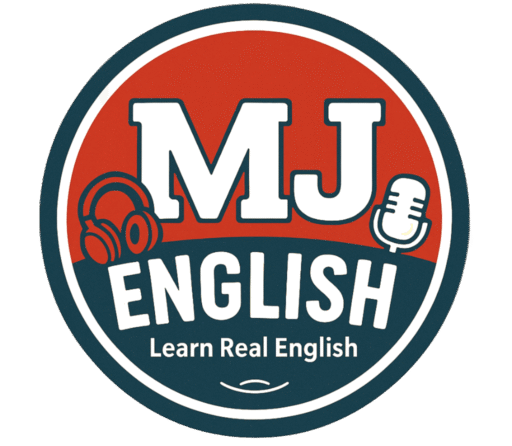疫情過後,Work from Home 已經不只是臨時方案,而是很多公司固定的制度。有人說它讓生活更自由,因為省下通勤時間;但也有人覺得更累,因為工作和生活的界線越來越模糊。不管你是哪一派,掌握 work from home English 才能讓你在職場中自然聊起遠距工作的優缺點。今天就帶你透過對話、單字、句型來一次搞懂!
🎧Apple Podcast | Spotify
💬 Dialogue | 對話
場景:台灣員工 Amy 和美國同事 David 在 Teams 視訊會議結束後,閒聊彼此對在家上班的看法。
英文對話
Amy: Hey David, do you like working from home?
David: Honestly, yes. It saves me a lot of commuting time.
Amy: True, I also enjoy the flexibility, but sometimes I feel isolated.
David: Same here. The biggest downside is having less social interaction.
Amy: Exactly! I miss those casual chats in the office.
David: Right, but the upside is that I’m more productive without office distractions.
Amy: Good point. For me, it’s hard to separate work from personal life.
David: Yeah, I often end up working late.
Amy: Have you tried keeping a daily routine?
David: Yes, and it really helps with work-life balance.
Amy: Maybe I should try that too.
David: Definitely. Work from Home has both pros and cons.
Amy: Couldn’t agree more!
中文
Amy:David,你喜歡在家上班嗎?
David:老實說,喜歡。我省下很多通勤時間。
Amy:沒錯,我也喜歡這份彈性,但有時候會覺得孤單。
David:我也是。最大的缺點就是社交變少。
Amy:真的!我很懷念辦公室裡那些輕鬆的聊天。
David:對啊,但優點是沒有辦公室干擾,我更有效率。
Amy:有道理。不過對我來說,很難把工作和私人生活分開。
David:對啊,我常常最後加班到很晚。
Amy:你有試過保持每天的固定行程嗎?
David:有,而且這真的對工作與生活平衡很有幫助。
Amy:也許我也該試試看。
David:一定要啊。在家上班真的有優點也有缺點。
Amy:完全同意!
📚 Vocabulary Boost|重點單字
| 單字 | 詞性 | 中文意思 | 英文例句 | 中文翻譯 |
|---|---|---|---|---|
| commuting | n. | 通勤 | I save time on commuting when I work from home. | 在家上班時我省下通勤時間。 |
| flexibility | n. | 彈性 | Remote work gives me more flexibility in my schedule. | 遠距工作讓我的時間表更有彈性。 |
| isolated | adj. | 孤單的 | Sometimes I feel isolated when I stay home all week. | 如果整週都在家,我有時候會覺得孤單。 |
| downside | n. | 缺點 | The downside is less social interaction. | 缺點是社交變少。 |
| upside | n. | 優點 | The biggest upside is more family time. | 最大的優點是家庭時間變多。 |
| productive | adj. | 有效率的 | I feel more productive without office noise. | 沒有辦公室噪音時,我覺得更有效率。 |
| distraction | n. | 干擾 | There are fewer distractions at home. | 在家干擾比較少。 |
| separate | v. | 區分 | It’s hard to separate work from personal life. | 很難把工作和生活分開。 |
| routine | n. | 日常安排 | A daily routine helps me stay focused. | 每日行程讓我更專注。 |
| balance | n. | 平衡 | Work-life balance is important for health. | 工作與生活的平衡對健康很重要。 |
| pros and cons | n. phr. | 優缺點 | Working from home has both pros and cons. | 在家上班有優點也有缺點。 |
🔍 Sentence Patterns|重點句型
| 句型結構(公式) | 中文意思 | 英文例句 | 中文翻譯 |
|---|---|---|---|
| Do you like + V-ing…? | 你喜歡做…嗎? | Do you like working from home? | 你喜歡在家上班嗎? |
| The downside is + 名詞/片語 | 缺點是… | The downside is less social interaction. | 缺點是社交變少。 |
| The upside is + 名詞/片語 | 優點是… | The upside is more family time. | 優點是更多家庭時間。 |
| It’s hard to + V | 很難去… | It’s hard to separate work from life. | 很難把工作和生活分開。 |
| Have you tried + V-ing…? | 你有試過…嗎? | Have you tried keeping a routine? | 你有試過保持行程嗎? |
| It really helps with + 名詞 | 這對…很有幫助 | It really helps with work-life balance. | 這真的對工作與生活平衡很有幫助。 |
| … has both pros and cons. | …有優點也有缺點 | Work from Home has both pros and cons. | 在家上班有優點也有缺點。 |
📖 Transcript 逐字稿
M: Welcome to MJ English.
歡迎收聽 MJ English。
J: Today we’re jumping into something that’s, uh, pretty much everywhere now—”working from home”, WFH.
今天我們要聊的是現在幾乎無所不在的主題——在家工作,簡稱 WFH。
J: It’s this interesting thing, isn’t it? Gives you loads of freedom, but sometimes that line between work and life just gets fuzzy.
這真的是個很有趣的現象對吧?它給了你很多自由,但有時候工作和生活之間的界線就變得模糊。
J: So our goal today is to get you equipped with the English you need to chat about WFH naturally—the good stuff, the not-so-good stuff, all of it.
所以我們今天的目標是幫助你掌握自然地聊「在家工作」的英文,無論是優點還是缺點,都能輕鬆表達。
M: So you can sound like you’ve been navigating it for ages.
讓你聽起來就像早就是這方面的老手一樣。
J: Exactly. Okay, so picture this: Amy in Taiwan and her colleague David in the US. They’ve just finished a Teams call.
沒錯。來想像這個情境:Amy 在台灣,而她的同事 David 在美國。他們剛結束一場 Teams 視訊會議。
J: And they hang back for a quick, honest chat about working from home.
他們留下來閒聊一下,談談在家上班的真實感受。
台灣員工 Amy 和美國同事 David 在 Teams 視訊會議結束後,閒聊彼此對在家上班的看法。
英文對話
Amy: Hey David, do you like working from home?
David: Honestly, yes. It saves me a lot of commuting time.
Amy: True, I also enjoy the flexibility, but sometimes I feel isolated.
David: Same here. The biggest downside is having less social interaction.
Amy: Exactly! I miss those casual chats in the office.
David: Right, but the upside is that I’m more productive without office distractions.
Amy: Good point. For me, it’s hard to separate work from personal life.
David: Yeah, I often end up working late.
Amy: Have you tried keeping a daily routine?
David: Yes, and it really helps with work-life balance.
Amy: Maybe I should try that too.
David: Definitely. Work from Home has both pros and cons.
Amy: Couldn’t agree more!
中文
Amy:David,你喜歡在家上班嗎?
David:老實說,喜歡。我省下很多通勤時間。
Amy:沒錯,我也喜歡這份彈性,但有時候會覺得孤單。
David:我也是。最大的缺點就是社交變少。
Amy:真的!我很懷念辦公室裡那些輕鬆的聊天。
David:對啊,但優點是沒有辦公室干擾,我更有效率。
Amy:有道理。不過對我來說,很難把工作和私人生活分開。
David:對啊,我常常最後加班到很晚。
Amy:你有試過保持每天的固定行程嗎?
David:有,而且這真的對工作與生活平衡很有幫助。
Amy:也許我也該試試看。
David:一定要啊。在家上班真的有優點也有缺點。
Amy:完全同意!
J: Okay, so Amy and David really touched on some common ground there.
Amy 和 David 的對話真的切中很多共同的感受。
M: Yeah, a lot of shared experiences.
對,都是我們常經歷的事情。
J: What jumps out first is just how many useful everyday words they used. Let’s, um, let’s unpack those a bit.
首先最值得注意的是他們用了好多實用的日常英文單字。來,我們一一拆解看看。
M: Let’s look at the vocabulary. First, David mentioned saving commuting time.
先來看單字部分。第一個是 David 提到的「節省通勤時間」。
J: Right, commuting.
沒錯,commuting(通勤)。
M: Yeah, commuting—it’s a noun. It’s that, you know, regular trip back and forth to work. For example: “I save time on commuting when I work from home.”
commuting 是個名詞,指的是每天上下班來回的那段路。像是:「我在家工作時可以省下通勤的時間。」
J: A big plus for many. Then Amy brought up enjoying the flexibility.
這對很多人來說是個大優點。接著 Amy 提到她喜歡彈性。
M: Yes, flexibility, another noun. It just means being able to change your schedule easily, adapt. Like: “Remote work gives me more flexibility in my schedule.”
對,flexibility 也是名詞,意思是可以輕鬆調整自己的時間、適應變化。像是:「遠端工作讓我的時間安排更有彈性。」
J: But then she mentioned feeling isolated. That’s a strong word.
但她也提到會覺得孤單。這是個蠻強烈的詞。
M: It is. Isolated—that’s an adjective. It describes feeling alone, cut off. For example: “Sometimes I feel isolated when I stay home all week.”
沒錯。isolated 是形容詞,意思是覺得孤立、與人疏離。例如:「當我整週都在家時,偶爾會感到孤單。」
J: And David chimed in with a downside being less social interaction.
David 接著說,缺點之一就是社交互動變少。
M: Downside, a noun. A really simple way to talk about a disadvantage. His example: “The downside is less social interaction.” Simple.
Downside 是名詞,用來表達缺點,非常直白。他說:「缺點是社交互動變少。」簡單明瞭。
J: But he flipped it, talking about the upside.
但他也講了另一面——好處。
M: The positive side. Upside, also a noun, an advantage. He mentioned productivity, but you could say: “The biggest upside is more family time.”
正面的一面。upside 也是名詞,表示好處。他提到的是生產力,也可以說:「最大的好處是有更多家庭時間。」
J: And talking about productivity, David felt more productive.
說到 productivity,David 覺得自己在家工作更有效率。
M: Yeah, productive, an adjective. It means you’re getting a lot done, achieving good results. Like: “I feel more productive without office noise.”
對,productive 是形容詞,意思是你完成了很多事情、成果不錯。例如:「沒有辦公室的噪音,我覺得效率更高。」
M: Distraction, a noun—anything that pulls your focus. For example: “There are fewer distractions at home.” That’s a common point people make.
distraction 是名詞,指的是讓你分心的東西。例如:「在家干擾比較少。」這是很多人會說的一點。
J: Then Amy mentioned that common struggle: it’s hard to separate work from personal life.
然後 Amy 講到一個大家常有的困擾:很難把工作和私生活分開。
M: Separate—the verb. To divide, keep things apart. And her example is perfect: “It’s hard to separate work from personal life.” So relatable.
separate 是動詞,意思是分開、區分。她的例句很到位:「很難把工作和生活分開。」超有共鳴。
J: And she asked David about keeping a daily routine.
而且她還問 David 有沒有保持每日作息的習慣。
M: Routine—a noun. That sequence of actions you do regularly. “A daily routine helps me stay focused,” something like that.
routine 是名詞,意思是你每天固定會做的一系列事情。像是:「每天的固定作息讓我更能專注。」
J: Which David said helped with work-life balance.
David 說這有助於維持工作與生活的平衡。
M: The crucial balance, noun again, meaning things are, you know, equal or in the right proportion. Like: “Work-life balance is important for health.” Really key.
balance(平衡)也是名詞,意思就是事情維持在適當的比例或狀態。像是:「工作與生活的平衡對健康很重要。」這點真的很關鍵。
J:Those words are definitely spot on for talking about WFH. But, uh, it wasn’t just the words, was it? It was how they put them together—the sentence patterns.
這些單字真的很適合拿來聊 WFH。不過,其實不只是單字對不對?更重要的是他們怎麼組句——也就是句型。
M: Those patterns are like templates you can use, super useful. Amy kicked off with: Do you like + V-ing?
這些句型就像模板一樣超好用。Amy 開場就用了:「Do you like + 動名詞?」
J: perfect for asking about preferences. “Do you like working from home?” Straightforward.
非常適合拿來問對方的喜好。像是:「你喜歡在家工作嗎?」簡單又清楚。
M: And David, for the negative point, used…
那 David 在講缺點時是怎麼說的呢?
J: The downside is + noun phrase. Really clear way to state a disadvantage. “The downside is less social interaction.” Easy to adapt.
他用的是「The downside is + 名詞片語」。這是表達缺點非常清楚的句型。像是:「缺點是社交互動減少。」很好套用。
M: And the positive flip side?
那相對的優點怎麼講?
J: The upside is + noun phrase. Just as clear for stating a benefit. “The upside is more family time,” for instance.
優點就用「The upside is + 名詞片語」。也一樣簡單明瞭。像是:「好處是有更多的家庭時間。」
M: I liked Amy’s phrase for her struggle: It’s hard to + verb. So simple.
我很喜歡 Amy 形容困難時用的那句:「It’s hard to + 動詞」,非常簡單。
J: “It’s hard to separate work from life.” Works for any difficulty, really.
像是:「很難把工作跟生活分開。」這句型幾乎能套用所有你覺得困難的情況。
M: And when she suggested the routine?
那她建議養成作息時怎麼說?
J: She used: Have you tried + V-ing? Great for asking if someone’s attempted something. “Have you tried keeping a routine?”
她用了「Have you tried + 動名詞?」這個句型非常適合問對方有沒有嘗試某件事。像是:「你有試過維持作息嗎?」
M: And David’s reply showing the benefit?
那 David 回答時怎麼表達好處的?
J: That was: It really helps with + noun. Your go-to for explaining a positive effect. “It really helps with work-life balance.”
他用了「It really helps with + 名詞」這句型。這是說明某事有幫助時的萬用句。像是:「這對工作與生活平衡真的有幫助。」
M: And the wrap-up phrase David used for any two-sided issue?
那 David 總結這整個議題時用的那句怎麼樣?
J: Oh, yes: has both pros and cons. Perfect summary. “Work from home has both pros and cons.” Shows you see both sides.
對,就是「has both pros and cons」。超棒的總結句。「在家工作有好處也有壞處。」這句話表達你看到事情的兩面性。
M: That’s a fantastic toolkit right there. Seriously, we encourage you, um, to try using these words and patterns when you talk about remote work. Just give them a go.
這些真的是超好用的工具包。真的,我們鼓勵你在聊遠端工作的時候用看看這些單字和句型,試著講講看。
M: Yeah, practice really makes the difference.
對啊,多練習真的會讓你進步。
J: Want the full transcript, key vocabulary, and useful sentence patterns? Just click the link below.
想要完整逐字稿、重點單字和實用句型?點下方連結就能看喔!
✅ Quick Check 小測驗
📌 延伸閱讀建議
- 【Business English】Pros and Cons of Remote Work 遠距工作的優缺點英文表達
- 【Online Meeting English】10 個必學的視訊會議英文句子
- 【Daily English Practice】如何在日常生活中練習英文口說



